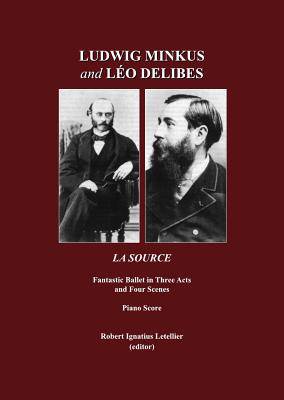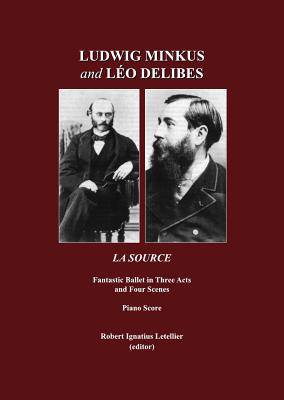
- Retrait gratuit dans votre magasin Club
- 7.000.000 titres dans notre catalogue
- Payer en toute sécurité
- Toujours un magasin près de chez vous
- Retrait gratuit dans votre magasin Club
- 7.000.0000 titres dans notre catalogue
- Payer en toute sécurité
- Toujours un magasin près de chez vous
Ludwig Minkus and Lã(c)O Delibes: La Source; Fantastic Ballet in Three Acts and Four Scenes, by Charles Nuitter and Arthur Saint-Lã(c)On: Piano Score
114,45 €
+ 228 points
Description
This volume reproduces the piano score of the ballet La Source, a joint composition by Ludwig Minkus and Leo Delibes. After the success of Nemea (1864), the Paris Opera ordered a new grand ballet from the famous choreographer Arthur Saint-Leon to a libretto based on a Persian legend by Charles Nuitter. Saint-Leon involved his musical collaborator in St Petersburg, Ludwig Minkus, in the project, securing for him a hand in the composition of the first and fourth scenes of the of this new work, La Source, a fantastic ballet in three acts. The composition of the other two scenes (the second and third) were entrusted to the young, unknown Leo Delibes, thirty at the time, who had drawn favourable attention to himself in the preparation of the ballet music for the premiere of Meyerbeer's posthumous L'Africaine in 1865. The first performance of La Source was on 12 November 1866 at the Theatre Imperial de l'Opera, with the principal dancers Guglielmina Salvioni (Naila), Eugenie Fiocre (Nouredda) and Louis Merante (Djemil). The ballet as a whole was very successful, with 73 performances until 1876. Saint-Leon immediately began planning another work with Nuitter and Delibes-Coppelia-one which would crown the young French's composer's success with triumph. This was premiered on 25 May 1870, the last of Saint-Leon's work, and the last great success of the French Romantic ballet at the Salle Le Peletier before the crisis of the Franco-Prussian War, and the end of the Second Empire. As regards the music of La Source, Delibes's contribution to the score, his first essay at ballet music, was noted for its vigour and many delightful melodies. In Jouvin's opinion, his music was vivacious and especially lively, and contrasted effectively with the plaintive melodies of Minkus. The style of the two composers, observed the critic of La France Musicale (18 November 1866), is essentially different and easily recognizable at a first hearing. M. Minkus's music has a vague, indolent, and melancholic character, full of grace and languor. That of M. Delibes, fresher and more rhythmic, is much more complicated in orchestration, and sometimes a little more ordinary. I should add that this difference in style is perfectly justified by the: contrasting character of the two parts of the ballet.
Spécifications
Parties prenantes
- Auteur(s) :
- Editeur:
Contenu
- Nombre de pages :
- 170
- Langue:
- Anglais
Caractéristiques
- EAN:
- 9781443819862
- Date de parution :
- 01-05-10
- Format:
- Partition
- Format numérique:
- Ongenaaid / garenloos gebonden
- Dimensions :
- 203 mm x 290 mm
- Poids :
- 476 g

Les avis
Nous publions uniquement les avis qui respectent les conditions requises. Consultez nos conditions pour les avis.






